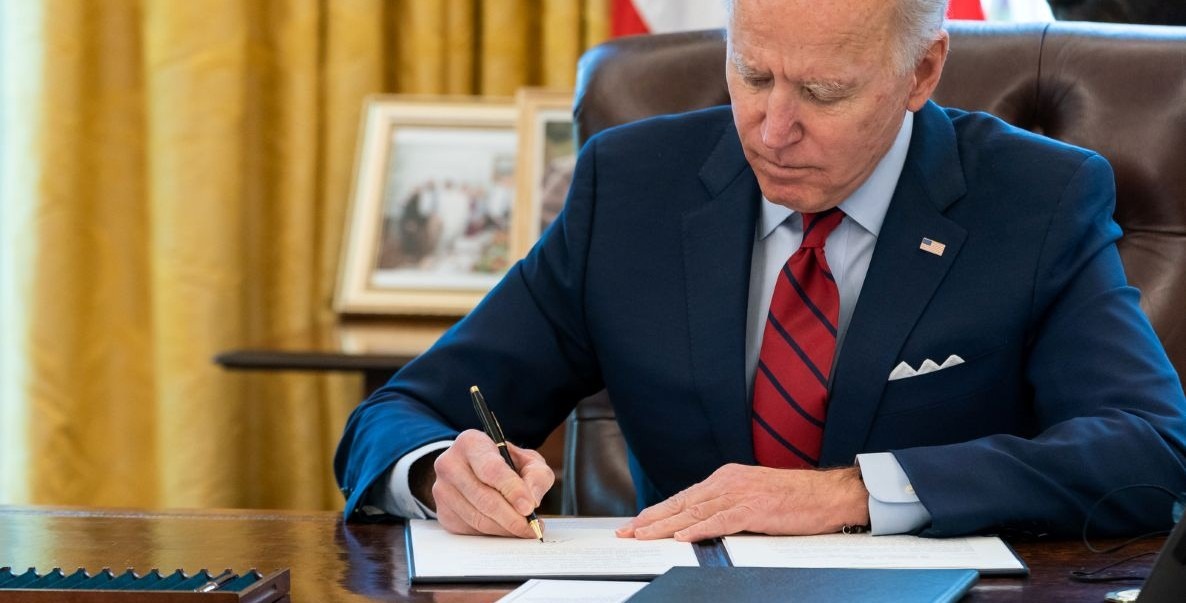With their recent commutation of death sentences for federal prisoners, President Joe Biden and Attorney General Merrick Garland are leaving office not in a blaze of glory but under a cloud of shame.
The clemencies seem like a culmination to a long record of dereliction and misjudgment. Biden and Garland spent the last few years lamenting the death toll of Americans killed by fentanyl, with overdoses and the accompanying violence of drug dealing resulting in more than 100,000 deaths per year, according to the administration’s own threat assessment. Meantime, Biden left the nation’s southern border wide open, allowing drug traffickers easy passage to bring more fentanyl into the United States.
For his part, the attorney general issued his infamous Garland memo, telling federal prosecutors not to impose mandatory minimum sentences on fentanyl traffickers (and other drug dealers) unless the dealers met a byzantine list of requirements for prior violence, leadership roles and criminal history, conditions virtually impossible to prove for shadowy drug couriers operating outside the United States.
The president had repeatedly stated that he would not pardon his son Hunter Biden, even as the younger Biden was convicted at trial of firearms offenses and then pled guilty to tax offenses. President Biden claimed the moral high ground, allegedly respecting the rule of law. Then Donald Trump won the election. With tallying of the election returns barely completed, Biden did an abrupt about-face, pardoning his son as sentencing proceedings loomed.
The president did not merely pardon Hunter for the two federal cases in which he already had been convicted but for any conduct going back to 2014 — a postdated, decade-long get-out-of-jail-free card designed to shield Hunter from some unsavory financial transactions that might have implicated the “big guy,” a term that government whistleblowers claim refers to the president himself.
If Biden is truly morally opposed to the death penalty, he could have granted these commutations when he entered office, instead of the politically riskless act of granting clemency as he rides off into the sunset.
And this was just a prelude. Supported by Garland’s Department of Justice, Biden then commuted the prison sentences of nearly 1,500 convicted federal criminals, the largest such grant ever given by an American president. Biden touted the historical nature of his action, claiming that the criminals affected had demonstrated “a strong commitment to making their communities safer.”
But Biden and Garland must not have been paying close attention to whom they were granting their favors, as they managed to include a commutation for corrupt former judge Michael Conahan. Conahan was one of the infamous “kids-for-cash” judges in Pennsylvania who sentenced juveniles to prison in exchange for millions of dollars in kickbacks, a scheme that affected more than 2,500 children and involved the suicide of at least one young man.
Who could have been providing such terrible advice to Biden and Garland? How about the DOJ’s official “pardon attorney,” Elizabeth Oyer? Experienced prosecutors who understand the gravity of granting clemency traditionally fill this post. Not this time: Oyer is “the first former public defender to be appointed Pardon Attorney.” Having spent the majority of her career trying to find ways to get charges against her clients dropped, Oyer found the ultimate loophole to finish off her federal service: get the president himself to overrule the work of law enforcement, prosecutors, juries and judges.
With Christmas looming, the Biden-Garland team handed out one more gift: the commutation of death sentences for 37 out of the 40 criminals on federal death row. Biden claimed that this decision honored his personal opposition to the death penalty, though he made exceptions in three cases: the Boston Marathon bomber, the Tree of Life synagogue shooter, and the Mother Emanuel Church murderer.
The backlash against these moves has been intense. Once again, it appears that Biden is not deeply aware of the specifics of what he has implemented — in this case, of the offenders and offenses for whom he has decided to grant mercy. Biden commuted the death sentence for a cop killer, Daryl Lawrence, who gunned down an Ohio police officer during a bank robbery in 2005. He commuted the death sentence for Kaboni Savage, a drug kingpin who ordered the firebombing of the Philadelphia home of a family of a cooperating witness, murdering four children in the process. Savage earned 13 death sentences in 2013, under President Barack Obama and Attorney General Eric Holder.
If Biden is truly morally opposed to the death penalty, he could have granted these commutations when he entered office, instead of the politically riskless act of granting clemency as he rides off into the sunset. And he might have granted commutations to all the federal death-row inmates, instead of cherry-picking which defendants to leave on death row, conveniently including the single defendant for whom he and Garland authorized capital punishment, thus exposing his own hypocrisy.
What can local and state prosecutors, who entrusted these homicide cases to the DOJ, do under these frustrating circumstances? It’s worth remembering that there is no statute of limitations on murder, so chief prosecutors around the nation can still try these overwhelmingly guilty individuals in state death penalty proceedings under the separate sovereigns doctrine.
What mischief is left for Biden and Garland to commit? There remains the threat of unprecedented preemptive pardons for his political allies. Nothing should surprise the American people at this point.
Tom Hogan has served as a federal prosecutor, local prosecutor, and elected district attorney in Chester County. He currently is a law professor. This piece originally appeared in City Journal.
The Citizen welcomes guest commentary from community members who represent that it is their own work and their own opinion based on true facts that they know firsthand.
![]() MORE POLITICAL COMMENTARY FROM THE CITIZEN
MORE POLITICAL COMMENTARY FROM THE CITIZEN



